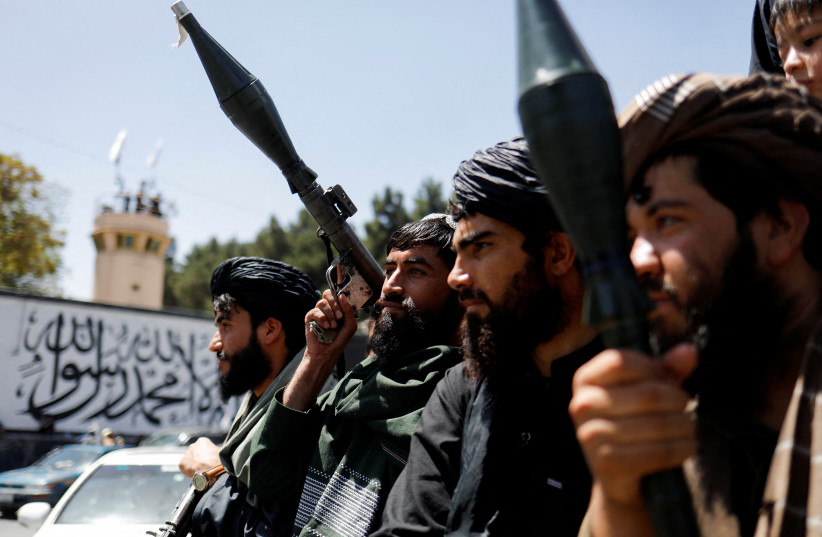A Taliban delegation will be attending a women-free UN-led meeting on the Afghan crisis on Sunday and Monday in Doha, Qatar, the terrorist organization announced Tuesday.
The Taliban-run Afghani foreign ministry in Kabul said the chief Taliban government spokesman, Zabihullah Mujahid, will lead the Taliban delegation.
The organizers of the meeting announced last week that women would be excluded from the meeting, a request made by the Taliban as a condition for their attendance.
The UN-led meeting aims to engage with the Taliban on a way to improve the lives of millions of Afghans and how to engage with the group moving forward, Reuters reported.
The strategy for the Doha meeting was discussed at a meeting chaired by Foreign Minister Amir Khan Muttaqi. The meeting discussed international restrictions imposed on Afghanistan’s financial and banking system, the challenges the country faces in growing the private sector, and the government’s actions against drug trafficking, Arab News reported, citing the foreign ministry.

The Taliban took power in Afghanistan in August 2021 when US troops and NATO forces pulled out of the country after 20 years of war.
This meeting, which will also include envoys from some 25 countries, will be the third such meeting in Doha. According to Reuters, however, it will be the first attended by the Taliban, as they are not officially recognized by any government.
The Taliban was not invited to the first meeting. Although they were invited to the second, UN Secretary-General Antonio Guterres said they set unacceptable conditions for attending the second meeting in February, Arab News reported.
According to Guterres, their demands included that Afghan civil society members not be included in the talks and that the Taliban be recognized as Afghanistan’s legitimate leadership.
Criticism of UN and the UN's response
Last week, Roza Otunbayeva, the UN’s top official in Afghanistan, defended the decision to include the Taliban at this meeting and insisted that demands for women’s rights will be raised.
In Afghanistan, the Taliban has banned female education and employment.
Human rights groups criticized the UN for not having Afghan women at the table with the Taliban in Doha, as well as for not intending to discuss women's rights or human rights at the meeting.
Heather Barr, Associate Director at Human Rights Watch, said she strongly disapproves of the decision to exclude human rights from the agenda of the upcoming Doha meeting on Afghanistan. She described the omission as "shocking" and said, "It will have major and long-term harmful effects."
Barr said that this decision "will have global implications as well. Security Resolution 1325, which is the resolution that says women have a right to be full participants in all important discussions about their country's future, has been around for 25 years [and] is a foundation to the international approach to women's rights. If women aren't at the table, they can't protect women's... rights."
Barr called this decision "a new low and a bit of an existential crisis." She added that it has been "baffling and incredibly distressing to see this happen."
The Organization for Policy Research and Development Studies (DROPS), a Kabul-based think tank focused on strengthening the values of inclusivity and pluralism in Afghanistan, echoed Barr's sentiments on X, formerly Twitter.
According to Reuters, the UN officials and the country envoys attending the Taliban meeting are also due to meet separately with Afghan civil society groups.
"I want to emphasize - this is a process. We are getting a lot of criticism: Why aren't women at the table? Why aren't Afghan women at the table? Why is civil society not at the table? This is not an inter-Afghan dialog," UN political affairs chief Rosemary DiCarlo said. "I would hope we could get to that someday, but we're not there."
